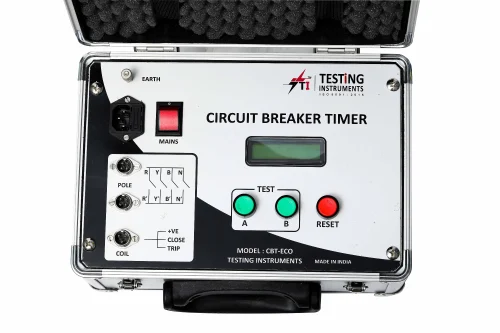Introduction
Circuit breakers are essential components in electrical systems, designed to protect circuits from damage caused by short circuits or current overloads. To ensure their proper functioning, circuit breakers need to be tested at various stages of production, commissioning, and maintenance. One of the key tests performed on circuit breakers is timing measurement using a Circuit Breaker Timer.
What is a Circuit Breaker Timer?
A Circuit Breaker Timer is a specialized piece of equipment used to measure the timing and motion of medium and high-voltage circuit breakers. It allows technicians to accurately measure the time duration of a circuit breaker’s opening and closing operations. This information is crucial in evaluating the performance and reliability of the circuit breaker.
The Circuit Breaker Timer consists of various components, including sensors, control units, and display screens. The sensors are used to detect the movement of the circuit breaker’s contacts, while the control units process the data and display it on the screen. Some advanced Circuit Breaker Timers also offer additional features such as waveform analysis and data logging.
What Is the Time Duration of a Circuit Breaker?
The time duration of a circuit breaker refers to the time it takes for the breaker to open and close its contacts. This duration is measured in milliseconds (ms) and is an important parameter in determining the breaker’s performance. The circuit breaker must open and close within a specified time range to ensure the protection of the electrical system.
The time duration of a circuit breaker can vary depending on its type and application. For example, low-voltage circuit breakers typically have faster opening and closing times compared to high-voltage circuit breakers. The time duration also depends on factors such as the current level, fault type, and the specific requirements of the electrical system.
Major Applications of Circuit Breaker Timer
The Circuit Breaker Timer has several important applications in the field of electrical testing and maintenance. Some of the major applications include:
- Contact Timing Tests: Circuit Breaker Timers are used to measure the time it takes for the circuit breaker contacts to open and close. This test helps in evaluating the breaker’s performance and identifying any abnormalities or deviations from the expected timing.
- Motion Tests: In addition to timing measurement, Circuit Breaker Timers can also detect the motion of the circuit breaker’s contacts. This test provides valuable information about the mechanical condition of the breaker and helps in identifying any issues related to contact alignment or wear.
- System Reliability Improvement: Regular testing of circuit breakers using a Circuit Breaker Timer can significantly improve the reliability of the electrical system. By identifying and rectifying any faulty or underperforming breakers, potential system failures can be prevented, ensuring an uninterrupted power supply.
Conclusion
Circuit Breaker Timers play a crucial role in the testing and maintenance of circuit breakers. By accurately measuring the timing and motion of the breakers, these specialized tools help in evaluating their performance and ensuring the reliability of the electrical system. Regular testing using a Circuit Breaker Timer can help identify any issues and prevent potential system failures, ultimately contributing to the overall efficiency and safety of electrical systems.















